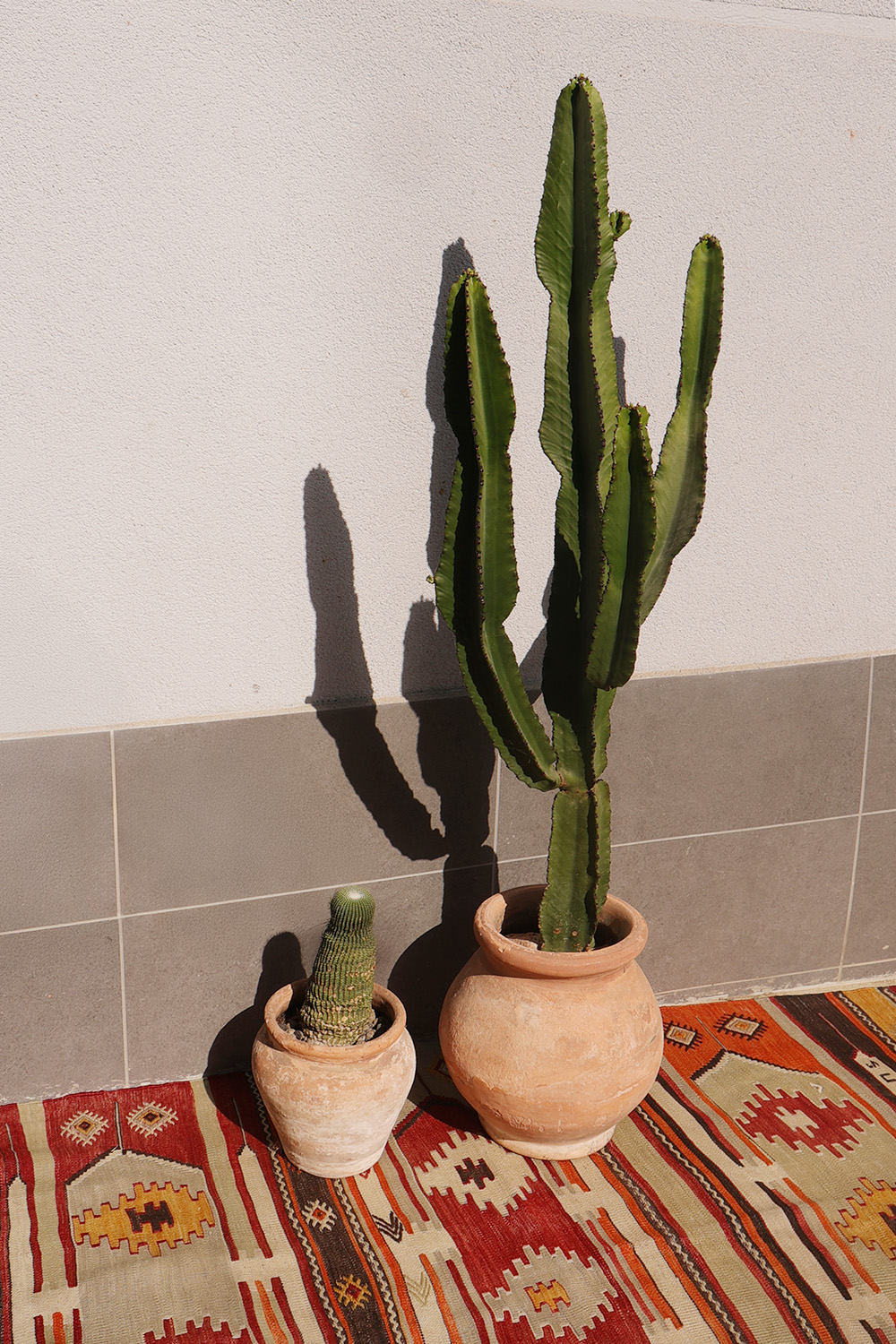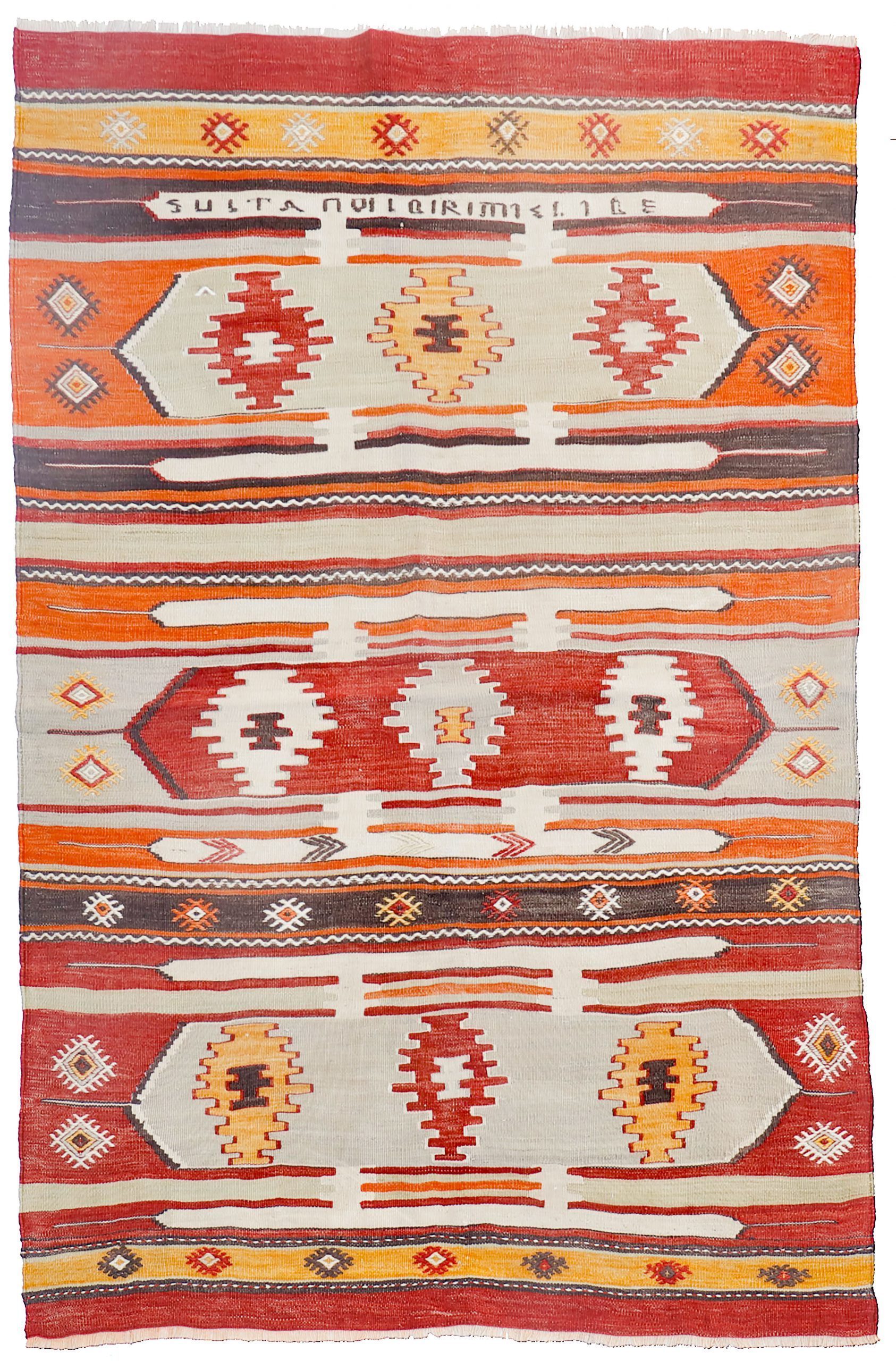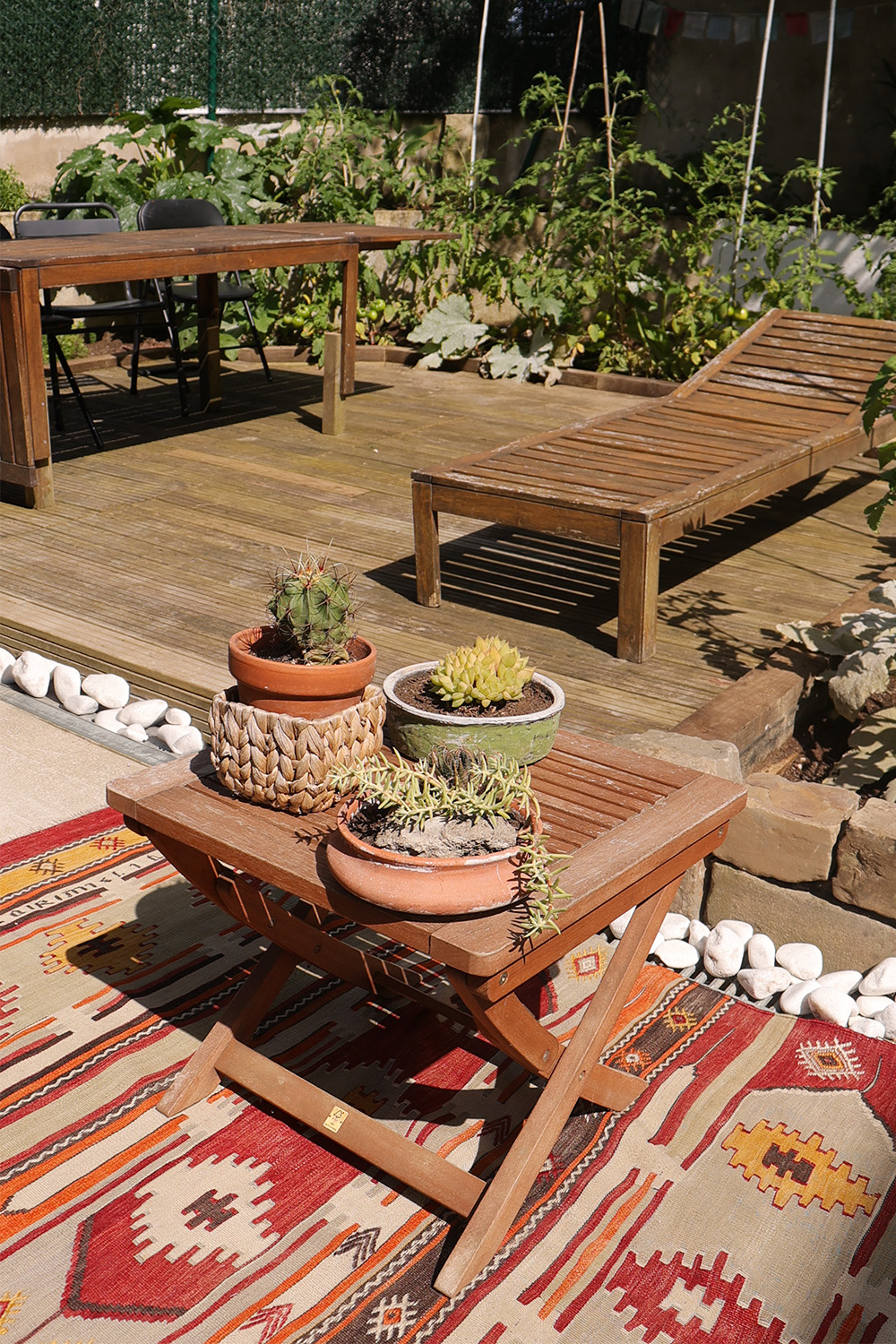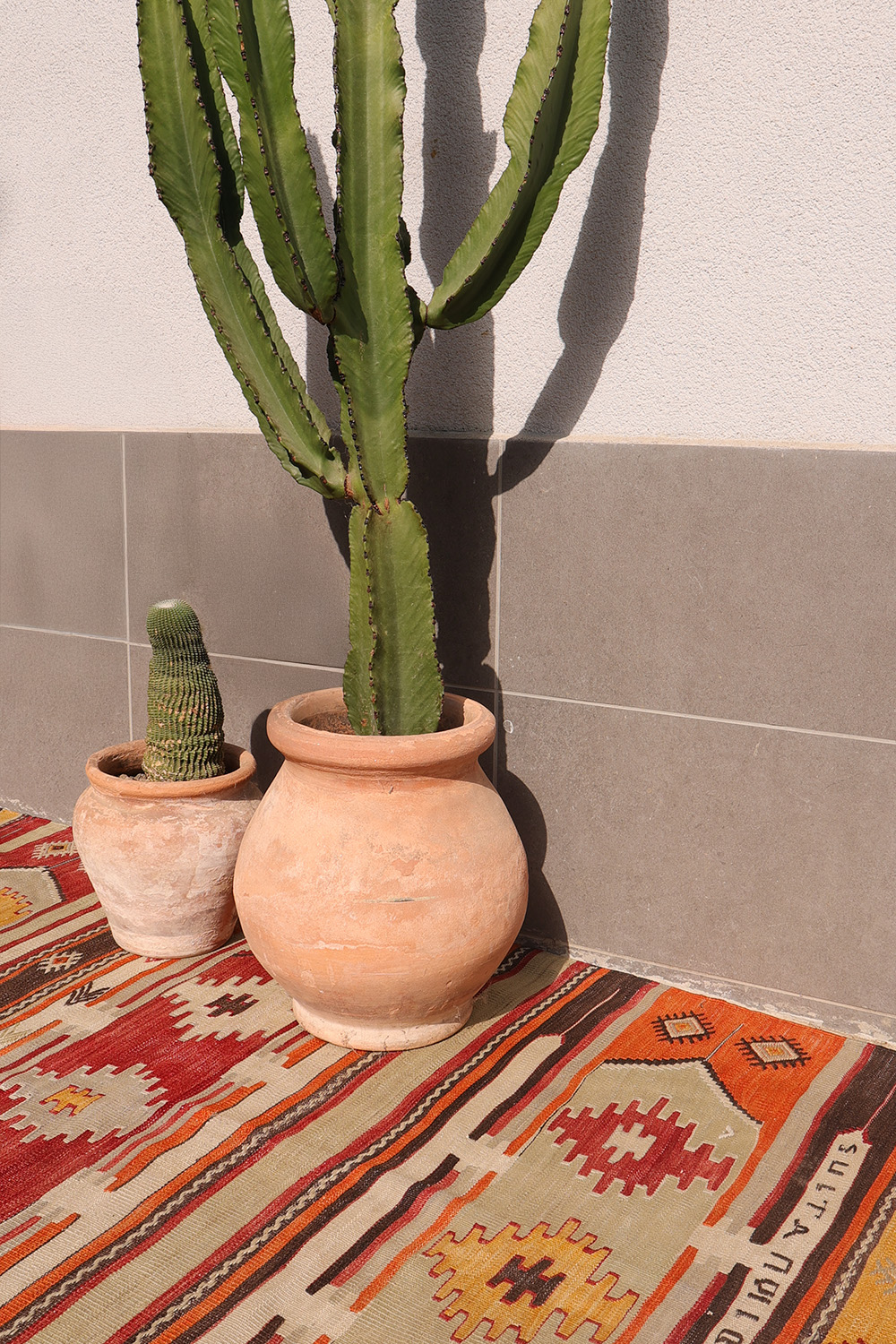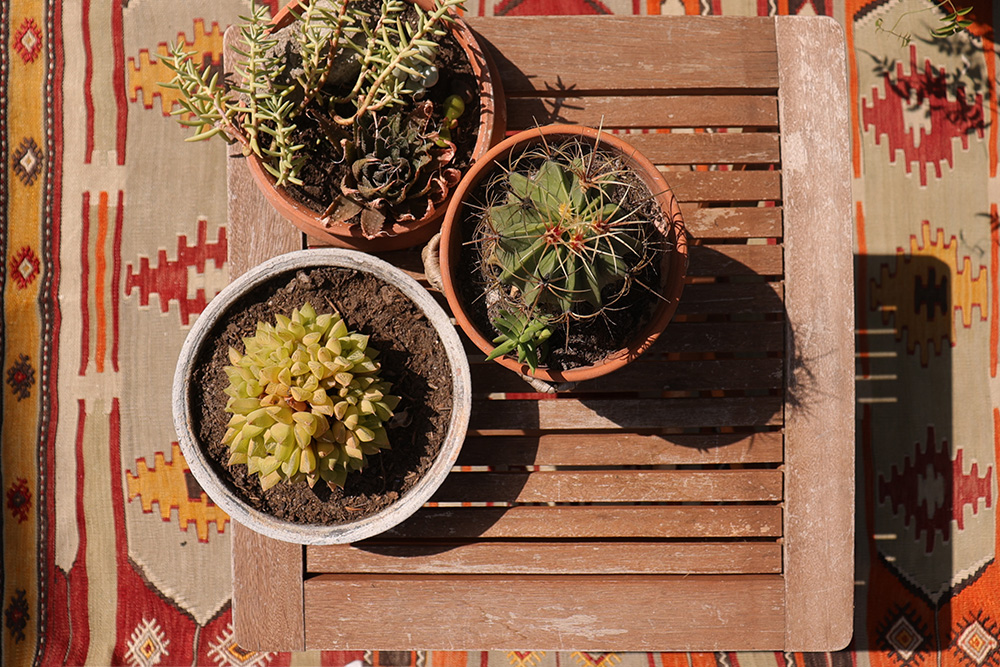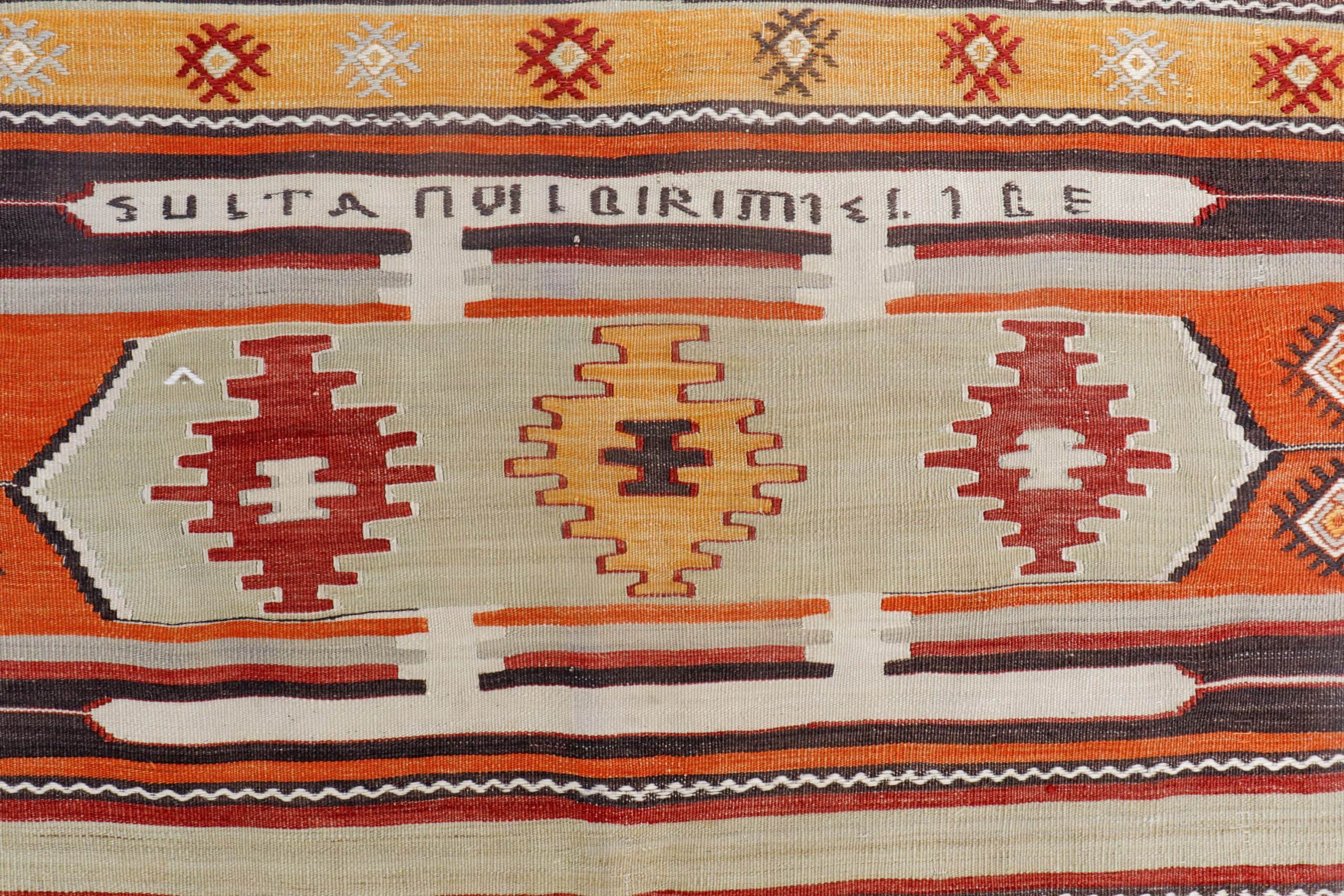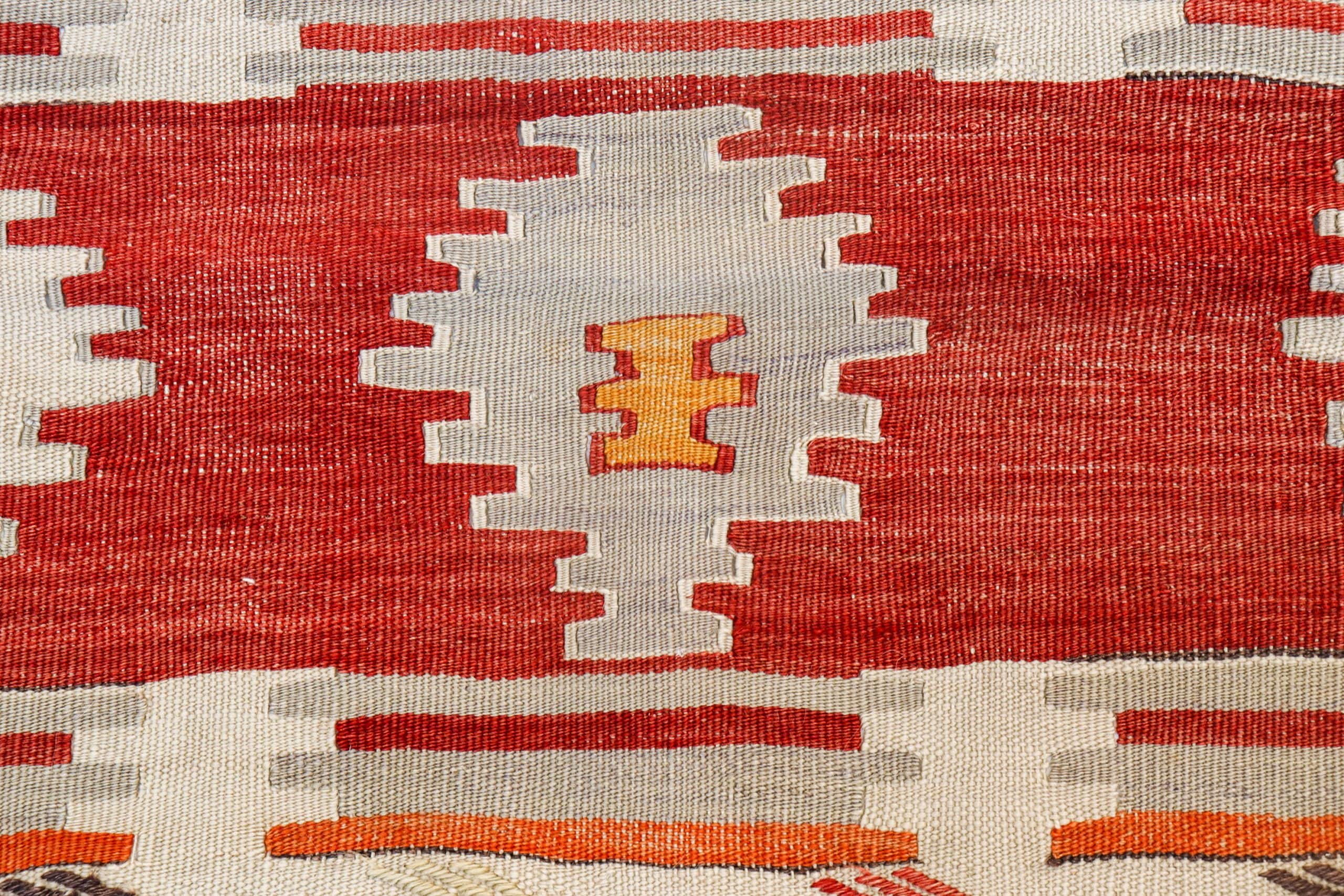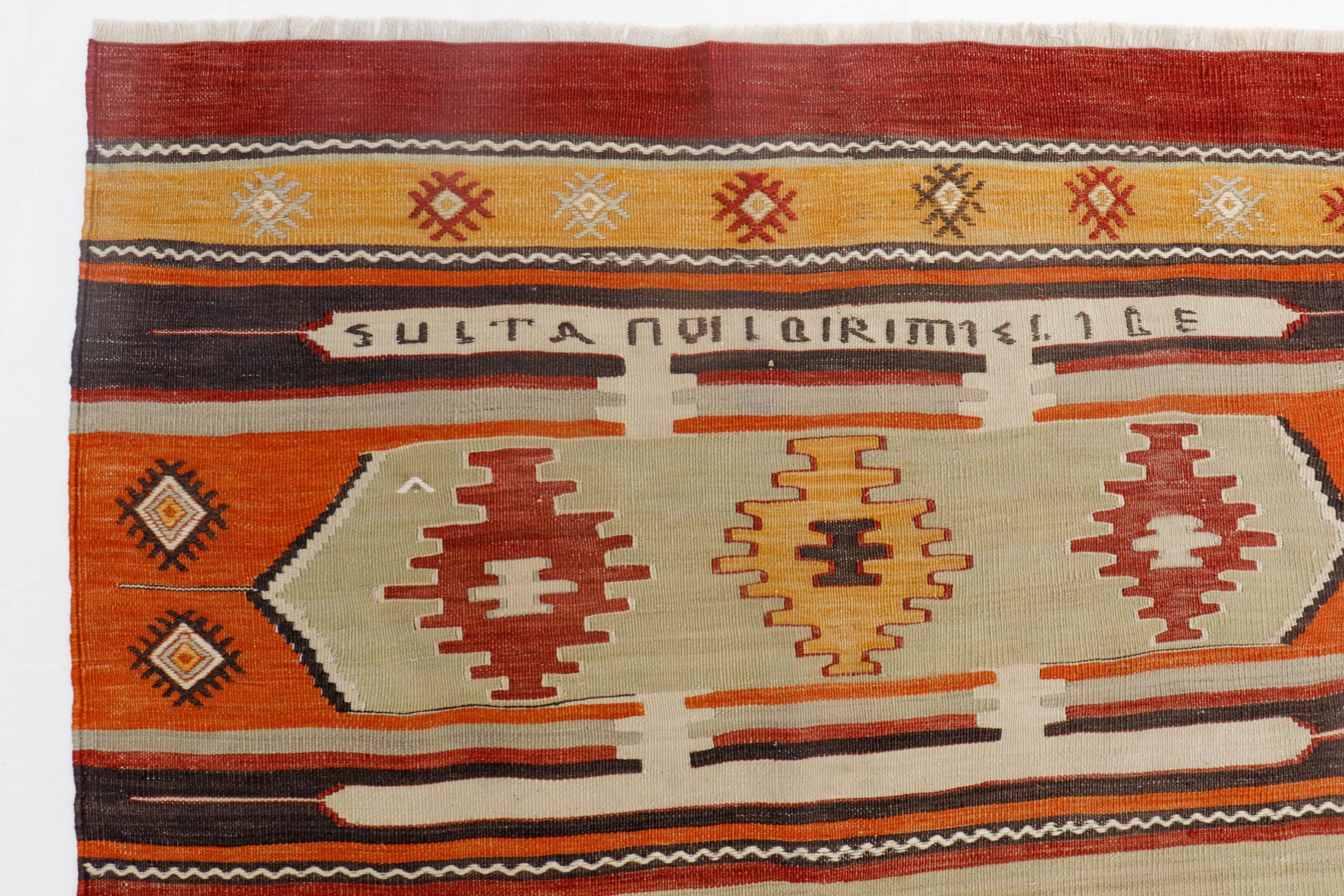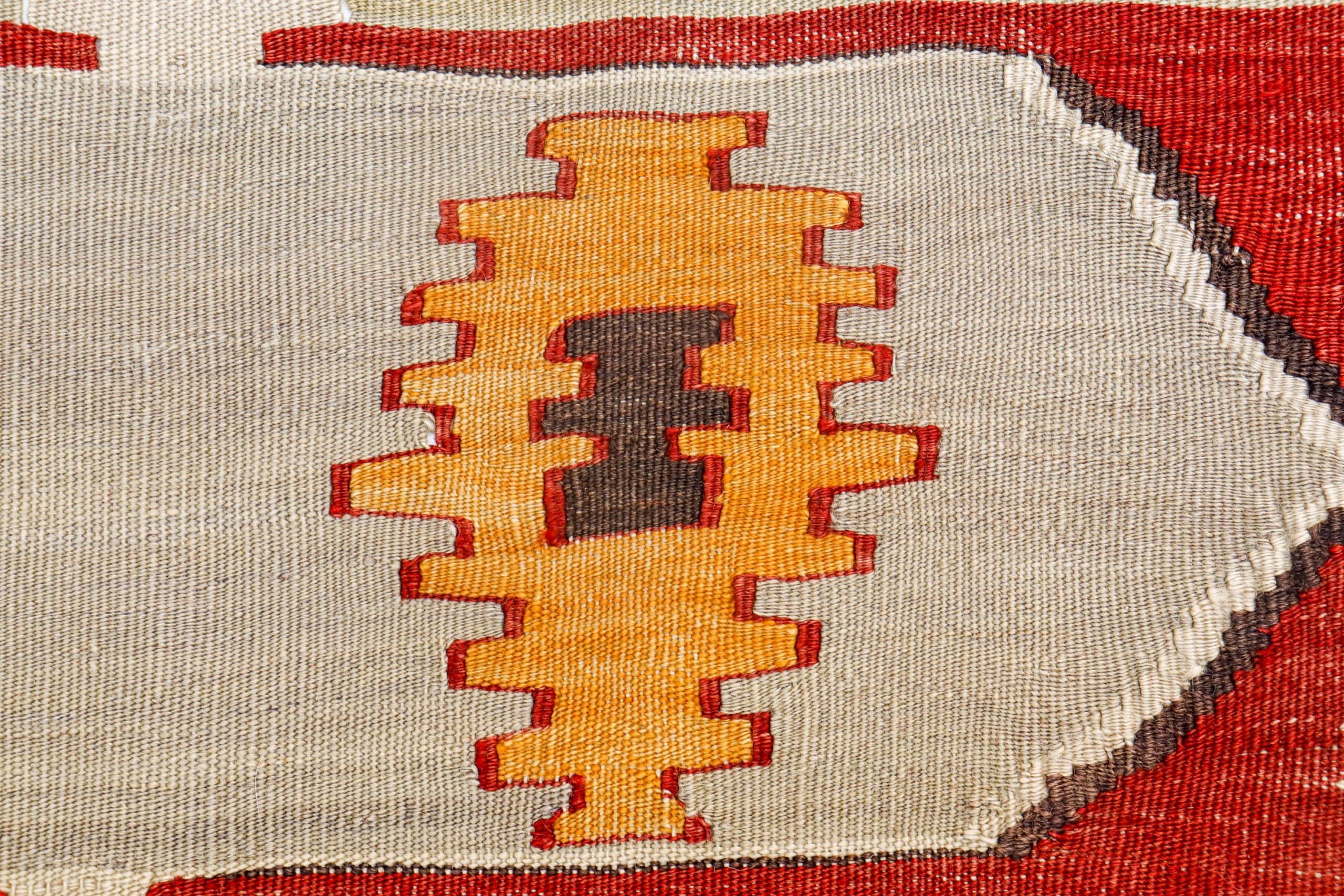850.00 €
A charming semi-antique Elbeyli kilim from Turkey, rich with history and craftsmanship. In the upper cartouche, the weaver inscribed names and a date, suggesting it was likely created as a dowry piece. The first word appears to be Sultan—a name with deep cultural resonance. Historically, sultan was a royal title for rulers of the Ottoman Empire, yet in Turkish naming traditions, it has also been used in female names, often paired with another element (e.g., Ayşe Sultan, Hürrem Sultan). The second part of the name remains unreadable, as does the final section, which seems to contain numbers.
The design is organized in striking horizontal bands and features classic Elbeyli motifs—hourglass forms that may also be interpreted as a double prayer niche (saf).
Finely woven with soft, lustrous wool and adorned with additional cicim technique motifs, this kilim is both a visually engaging textile and a piece of cultural heritage.
Material: 100% hand-spun sheep wool
Size: 167×110 cms
Origin: Elbeyli, Turkey
Date of weaving: 1950
Kilims or Gilims are flatwoven textiles with a woollen weft on a woollen, goat hair or cotton warp. There are many different techniques and designs. The weaver normally works within a tradition of techniques, motifs and designs specific to a particular area or ethnic group. The designs relate to her natural surroundings, protection, fertility and the harmony of family relationships. Each weaver adds something from her own creativity and sense of composition. Kilims are often woven as part of a marriage dowry and can be used to create many different objects like storage bags, horse-blankets, baby carriers, blankets and wall and floor coverings.
This kilim was hand-woven on a simple loom by a village or nomadic weaver for her own use. Probably the weaver used wool from her own sheep. The wool was first cleaned, then hand-carded, hand-spun and finally dyed by hand, often using natural dye materials like roots, nuts, berries, fruits, flowers and plants. Kilims from the last quarter of the twentieth century mostly use synthetic dyes. This kilim would have taken many months to complete.
All our kilims selected in the country of origin and are professionally washed and restored before we import them directly from Iran, Turkey and Afghanistan. Natural patina and charming imperfections in design and colour (abrash) are highly valued characteristics of hand-woven kilims.
1 in stock
Additional information
| Weight | 2.9 kg |
|---|
Subscribe and receive the lastest news
